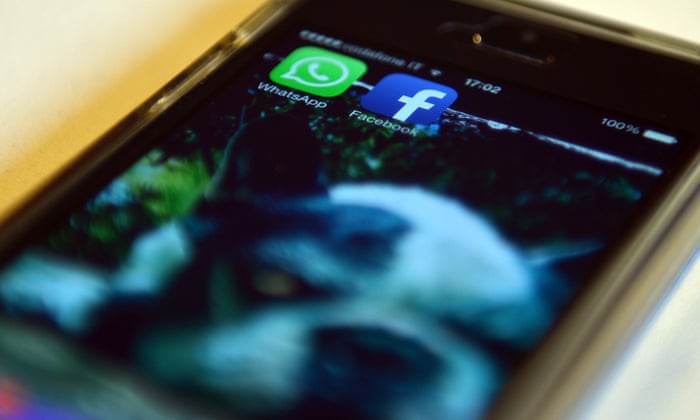The idea that humans will shift from using native apps on their smartphones to using HTML5 web sites supplying the equal functionality hasn’t performed out, in step with the analytics business enterprise Flurry. Instead, US clients” use of cell…
The idea that humans will shift from using native apps on their smartphones to using HTML5 web sites supplying the equal functionality hasn’t performed out, in step with the analytics business enterprise Flurry.
Instead, US clients” use of cell internet websites has dropped by nearly a quarter, from a median of 31 mins every day in March 2013 to 22 mins a year later.

That has come while people are spending longer on their phones – upon common to 2h42m according today compared to 2h38m in March 2013 – and that they spend even longer using apps rather than the mobile network.
In step with Flurry’s information, app use grew from eighty% of peoples’ phone use – 2h6m day by day – to 86% or 2h19m. cellular net use dropped from 31m to 22m, as measured for the study through any other research company, ComScore.
The findings are also significant because we have had high-velocity 4G connectivity for a minimum year from more than one mobile network – which might indicate that connection speed might no longer be an obstacle to using cellular internet apps.
Flurry’s facts, gathered from millions of customers’ smartphones, shows that gaming is the biggest unmarried category of use, with 32% of peoples’ time on common, observed by Facebook (17%). Different social messaging, including Twitter, contains 11%, accompanied by YouTube (four%). Information apps take in three% of peoples’ time spent on the tool.
Flurry commented: “each Google and Facebook have thoroughly set up franchises on mobile. However, the market continues to be very fragmented. In truth, Google and FB blended possibly command less than 25% of the average US cell customer’s overall time. According to ComScore, the pinnacle ten franchises account for less than 40% of the time spent. So despite great efforts by Google and Facebook, the market nevertheless hasn’t consolidated. Over the past couple of years, we’ve got seen new franchises emerge in almost every sector of cellular.”
The growing use of apps, rather than browsers, contrasts strongly with the laptop-based total use of the internet, in which net use is heavy, and customers are comparatively without problems tracked. “This information from Flurry on shrinking cellular net usage poses a few demanding situations for Google,” commented Ben Bajarin of the consultancy creative strategies. “[The] submit-computer era is also post-internet.” He added: “With cellular web usage from smartphones declining, we additionally need a better manner to measure cell engagement than using internet surfing metrics.”

For Google, smartphone users’ indifference to the cellular web in favor of apps presents trouble because it cannot comply with users’ pastime internal apps, unlike when a person is logged into a Google account even as they use a computer browser. The search corporation has started an initiative imparting hyperlinks to the in-app content material for Android developers, which it will be capable of the index.
RELATED ARTICLES :
- Indian village bans women from using mobile phones
- EU expands battle with Google with Android antitrust probe
- Bharti Airtel board okays takeover of patron cellular enterprise
- App maker’s code stolen in malware attack
- Uber launches Freight app for trucking businesses
however, Flurry observed accurate news for Google: far greater cell advertising money is spent with it than time is spent on its merchandise. It calculates that although people spend approximately 18% of smartphone time in Google houses, including YouTube or in browsers where it could show ads, it obtained 49% of mobile ad spending, consistent with eMarketer, a studies’ agency.
by assessment, facebook receives 18% of cell ad spending – at the same time as humans spend approximately 17% of their time on its cell residences. “other” apps are losing out, Flurry cautioned: “the rest of the apps, including gaming apps, are definitely now not getting their fair percentage of advertising spent. [They] command 65% of time spent, but most effective acquire 32% of advert sales.”
Flurry concludes that “one aspect is clear – apps have won and the cellular browser is taking a back seat. Now every business enterprise in the international including Google is adjusting to that fact.”
Popular
-

Is it ‘Internet’ or ‘internet?’ The Internet can’t agree.
Inside the summer, the “internet” will become the “internet,” as…
2313 0 -

-

AI Security Tips for the Future of Cybersecurity
AI will play a significant role in the next generation…
313 0 -

-

10 ways to keep your internet identity safe from hackers
we’re high up in the Gherkin in the metropolis of…
2012 0
Latest News
A proxy war: Apple ad-blocking software scares publishers but rival Google is target
By Steven S. NashWhen Apple found out that its new working system for mobile phones, iOS nine, would function what the organization knew…





















